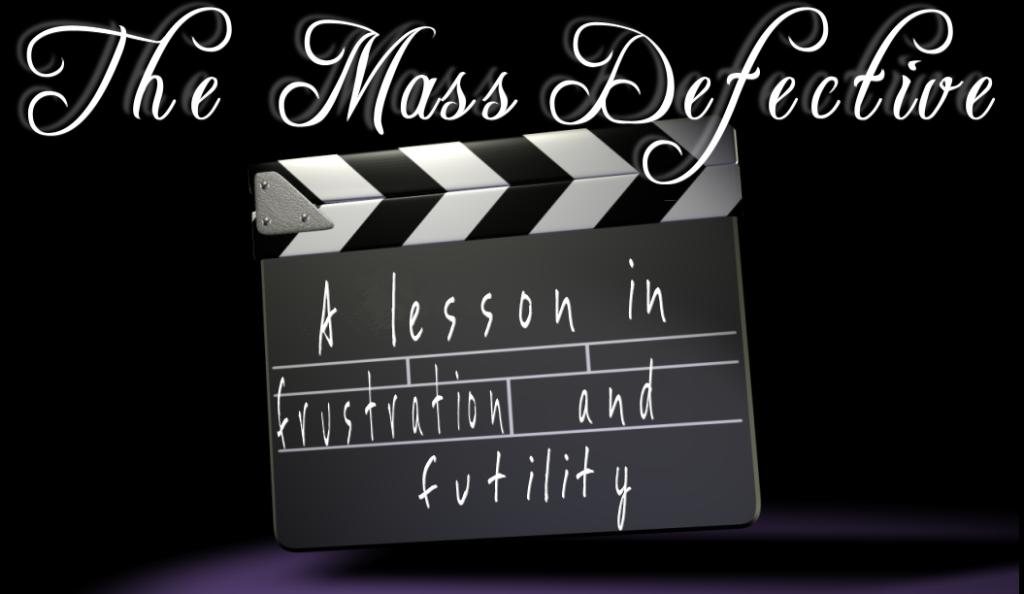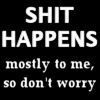The Bipolar spectrum
Part of the reason I haven't been around posting much is because my computer has reached the point where it is so old and obsolete that I can barely connect to the Internet without the damn thing freezing up. About all I can do, on a good day, is check email and read the news headlines. Sometimes my computer can't even handle those small tasks without straining to the point I swear the thing is going to blow up. I do use my daughter's laptop when she's not home, but I am reluctant to blog on it because even when I delete the history, websites I've visited still seem to show up.
I do have $450 saved towards a new computer, but with the loss of a third of our monthly income now that the kiddie has graduated high school, I'm reluctant to spend it. With the way things work in my life, if I spend the money on a computer, the clutch on my car will go or the TV that's barely functional will completely die. Actually, with my luck, all three of them will die at once and I'll be stuck without a computer or TV because having a car is the biggest priority. No matter what, I'm gonna be screwed so I guess I should just buy a new computer. I just need to decide, a laptop or a desktop.
Anyway, I attended a DBSA (Depression & Bipolar Support Alliance) meeting on Tuesday. It's only the third one I've gone to in probably as many years, but I'm glad I did because I learned the concept of the Bipolar spectrum and how a person can have Bipolar without ever having had a manic or hypomanic episode. For those not familiar, as I wasn't, apparently the mental health industry now believes (or at least some do) that unipolar and bipolar exist on a continuum with the DSM definitions of Major Depression and Bipolar I being the bookends, with a vast array of clinical presentations in between.
Most people know the criteria for Major Depression and Bipolar I & II, however there are other criteria which, while insufficient on their own to establish a diagnosis, are highly suggestive of Bipolar:
1) Repeated episodes of Major Depression (4 or more; seasonal shifts in mood are also common).
2) The first episode of Major Depression occurred before the age of 25.
3) A first degree relative has a diagnosis of Bipolar Disorder.
4) When not depressed, mood and energy are a bit higher than average all the time.
5) When depressed, symptoms are "atypical": extremely low energy and activity, excessive sleep (more than 10 hours a day), excessive appetite (often with strong carbohydrate cravings), mood is highly reactive to others.
6) Episodes of Major Depression are brief, less than 3 months.
7) The patient has had psychosis during an episode of depression.
8) The patient has suffered postpartum depression or psychosis.
9) The patient has had hypomania/mania, or severe irritability, difficulty sleeping and agitation, while taking an antidepressant.
10) The patient has had loss of response to an antidepressant.
11) Three or more antidepressants have been tried and none worked.
All of the above apply to me except #3 and #6. There's too much other stuff going on for me to just have Major Depression, but there's a lack of some of the most critical criteria to warrant the diagnosis of Borderline Personality Disorder, so I think I'm finally on the right track in pursuing the Bipolar diagnosis. Now if I could just get my pdoc and therapist on the same page, I might actually make progress instead of receiving inadequate treatment because I'm constantly being misdiagnosed.













5 Comments:
Very informative post. My daughter was misdiagnosed with borderline personality disorder as well. The wrong medication sent her into a scary downward cycle. I hope you can get your pdoc to understand what needs to be done.
Hang in there both with the new computer (actually I just realized how horrible that slang term is, isn't it? Doh!) and having bp. I have BP disorder II and it seems like they whomever the official diagnosticians are that what constitutes one having BP disorder keeps changing. For me what I've found helpful is noting what doesn't feel right in specific terms and what has happened, emotionally, physically and then finding a professional who won't just slap a DSM label on me but really listen to me and then offer suggestions, not cram them down my throat. So glad you're posting, despite your computer woes.
I absolutely agree with the spectrum approach. I had come to this idea after reading a few articles on the web, plus the words of bipolar bloggers and my own experience. It's good to know this concept is more accepted now. I have had all but #7 and (obviously) #8, though I may have been close to psychosis a couple of times.
#5, the "atypical depression" is especially true for me, in fact that is what pointed me in the direction of bipolar rather than unipolar depression. Key words are "highly reactive", "strong carbo cravings", and "fatass" (oops, my word). Of course my pdoc disagreed because he was an idiot, then I went in the hospital and was correctly diagnosed (but incorrectly medicated).
I don't know if you're interested but I'm giving you a blogger award. Please feel free to follow the link for the details and the award itself. Luv you!
http://www.walkingtheborderline.com/2010/07/yay-me.html
Sid...are you ok? It has been a very long time and I am beginning to worry about you.
Please keep fighting. Your efforts give other sufferers courage.
Jim (a loyal reader and fellow sufferer)
Post a Comment
<< Home